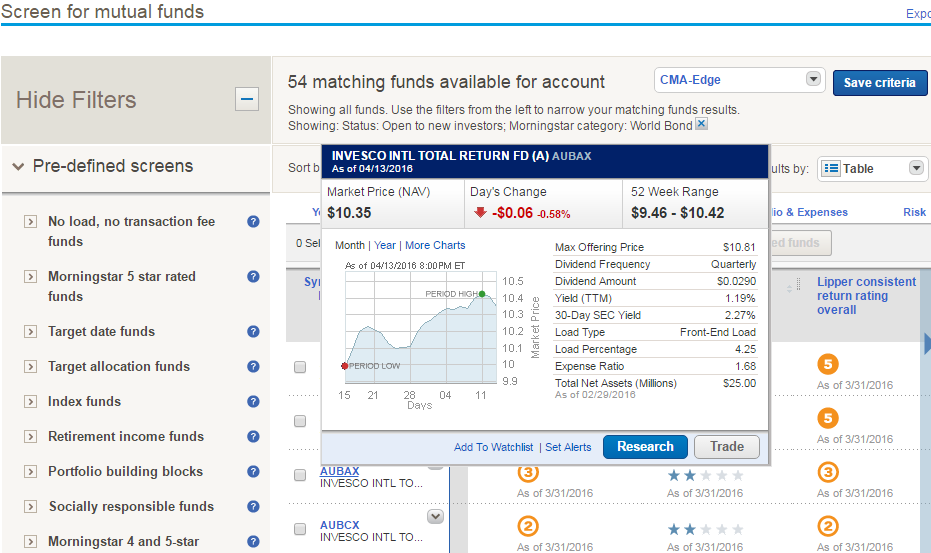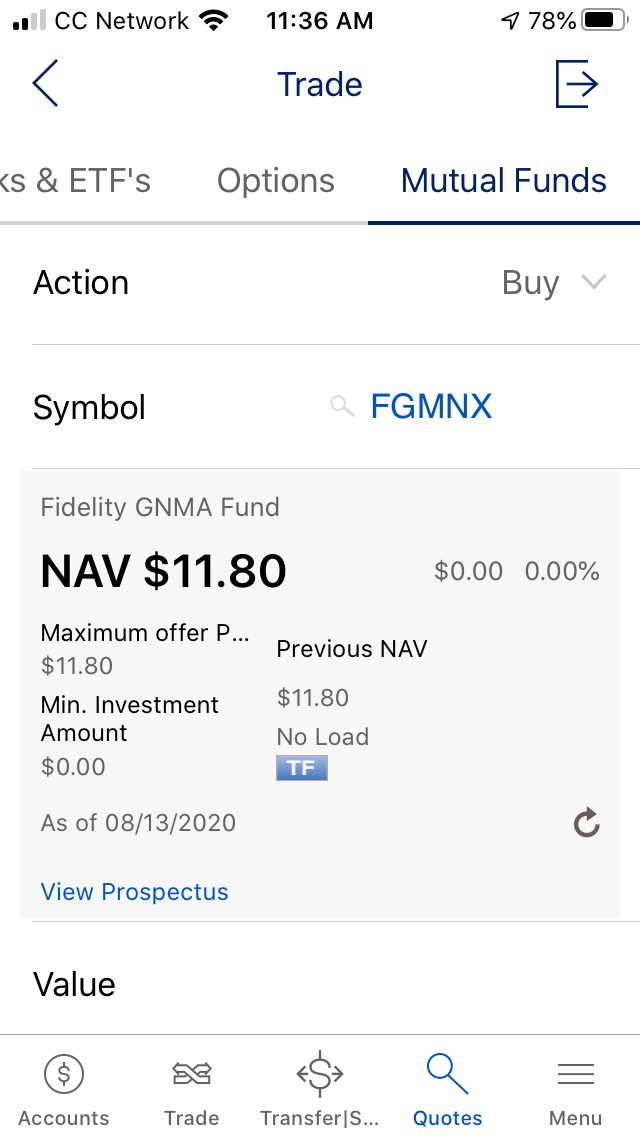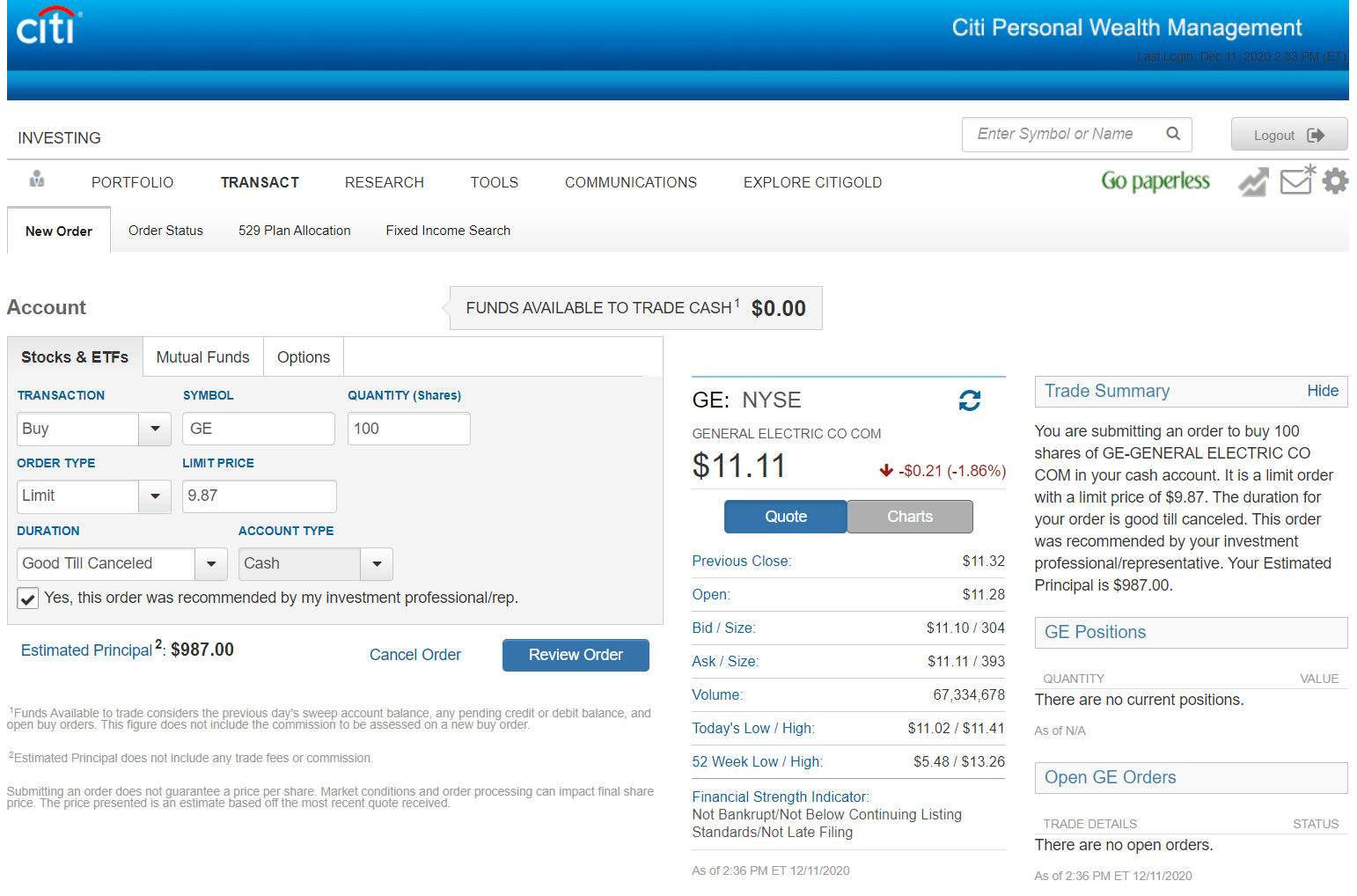
|
Merrill Edge vs Citi Self Invest (2024)
|
Merrill Edge vs. Citi Introduction
The bull and the traveler’s which group holds more value for their investors. Most wall street
firms are now reengineering the way clients trade in the 21st century. So, for the 2nd and 3rd
largest banks in the U.S. it would only be fitting they offer competitive trading platforms to
bolster revenues for the firm. Let us look at a comparison of the two brokerages on how they fair
to one another.
Cost
| Broker Fees |
Stock/ETF
Commission |
Mutual Fund
Commission |
Options
Commission |
Maintenance
Fee |
Annual IRA
Fee |
|
Merrill Edge
|
$0
|
$19.99
|
$0.65 per contract
|
$0
|
$0
|
|
Citibank
|
$0
|
$0
|
na
|
$0
|
$0
|
|
Firstrade
|
$0
|
$0
|
$0
|
$0
|
$0
|
Services
Promotions
Firstrade: Get up to $250 ACAT rebate and $0 commission trades.
Merrill Edge: no promotion right now.
Citi: no promotion right now.
Merrill Edge
Merrill Edge is a spin-off subsidiary from the iconic Merrill Lynch name. The brand was created
for the common investor and clients with a net worth under 250 thousand. The Merrill setup is one
of the best on the market for every investor from beginner to expert. They offer various accounts
to choose from CMA, Roth IRA, Traditional IRA, college planning, self-directed, guided investing,
and many more options.
What makes Merrill Edge one of the most attractive platforms to use is their initial sign-up bonus,
commission fees, integrated research and analysis, access to financial advisors with assets
20 thousand or more, and integration with the bank of America clients.
Typically, if the client has assets of 20 thousand or more, they qualify for Bank of America's
preferred rewards program which gives them more perks using Merrill Edge. On top of that, the
client gets 0-dollar commission & trade fees.
Also, the details and information that goes into their market and insight research tabs are priceless.
The client is getting the same information as a Merrill Lynch client who pays a high premium for being
a client.

Merrill Edge Trading Tools
The one thing that sets Bank of America / Merrill Lynch apart from any Wall Street firm is the amount
of money spent on technology. The Merrill Edge platform is quite simple and user friendly. The user
can trade on a mobile app or desktop interface.

There are a few differences between the two though. For example, in order to reinvest dividends, one
must use the desktop version, Trading options are very condensed on the app versus the desktop, and
charts are easier to read on the desktop version.
Merrill Edge Verdict
Merrill Edge is a good trading platform for anyone looking to invest. The integrated system for Bank
of America clients, 0-dollar trade fees, and the ability to work with an advisor would make this a
great choice for anyone to use. Also, the user-friendliness of the app and desktop interface makes it
easy for the user to navigate and trade.
Citi Brokerage
Citi Brokerage is another choice for the investor to choose as their preferred trading platform.
Citi offers similar options as many other brokerages do for their clients. The typical IRA’s,
college planning, cash account, etc.
Citi Brokerage Trading Tools
The Citi platform is not one of the best and could use a lot of updates or even a complete
overhaul. The platform lags so many other brokers with respect to user-friendliness, options on
the mobile app, constant technical difficulties, and time lags.

Citi Cost
Citi unlike many other brokers charges a trade fee of $4.95 per trade. This is one of the major
disadvantages of trading with Citi due to the sheer fact there are so many other brokerages not
charging fees.
Problems
Also, Citi does not have a good database of the research market and analysis for the client to use
when making investing decisions. Also, most features must be implemented via the desktop or
calling directly to the wealth management department.
Another major problem is time delays when trading. The system is 15 minutes behind the current
stock price and goes into a queue, that can take several minutes to execute.
Citi brokerage also requires more capital than most firms to get into the door. Most investors
need at least 50 thousand plus in order to get an account.
Also, in order to use strategies like margin, call, and put options. The client must also call the
brokerage department in order to get things like dividend reinvestment options, the mutual fund
sells, and margin trading.
All of these make Citi brokerage, not a preferred choice to invest with unless the client has a
deep banking relationship with Citibank.
Citi vs Merrill Edge Verdict
Comparing the two Merrill Edge by far edges out Citi brokerage as the best choice to invest with.
The commission fee trading versus paying, much more integrated trading platform via mobile app &
desktop, and better market research and analysis. Both do offer great perks for existing client
relationships for advisor services.
Overall, Merrill Edge is much better for the beginner investor all the way to the most advanced.
Investors looking for the lowest commissions
should take a look at Firstrade.
Promotions
Firstrade: Get up to $250 ACAT rebate and $0 commission trades.
Merrill Edge: no promotion right now.
Citi: no promotion right now.
|
Open Account
|
Open Account
|